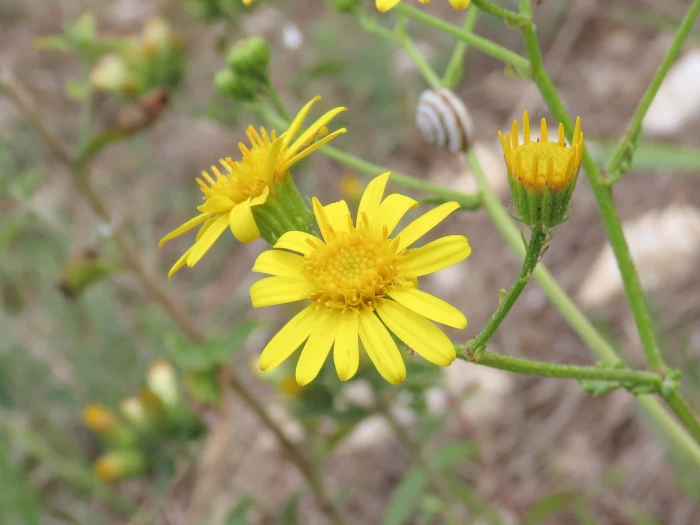Hoary Ragwort
(Jacobaea erucifolia)
Hoary Ragwort (Jacobaea erucifolia)
/
/

Emanuele Santarelli
CC BY-SA 4.0
Image By:
Emanuele Santarelli
Recorded By:
Copyright:
CC BY-SA 4.0
Copyright Notice:
Photo by: Emanuele Santarelli | License Type: CC BY-SA 4.0 | License URL: http://creativecommons.org/licenses/by-sa/4.0/ | Rights Holder: Emanuele Santarelli | Publisher: iNaturalist | Date Created: 2022-09-11T12:42:58-07:00 |
























Estimated Native Range
Climate Requirements for Escondido, California
| This Plant | Your Site | Plant Suitability for Your Location | ||
|---|---|---|---|---|
| • Precipitation | 6" - 102" | 14" | Your precipitation may be insufficient for this plant. Irrigate N" / year. | Irrigate N" / year |
| • High Temp. | 56°F - 91°F | 89°F | Your summer temperatures are normal for this plant. | Excellent |
| • Low Temp. | -45°F - 45°F | 42°F | Your winter temperatures are normal for this plant | Excellent |
This plant should grow well at your location with about N inches per year (Y minutes per month) of irrigation.
Summary
Jacobaea erucifolia, commonly known as Hoary Ragwort or Hoary Groundsel, is a perennial herb native to open grasslands, pastures, and disturbed areas in Eurasia. It typically grows to a height of 1.5-2.5 feet (0.46-0.76 meters) and is characterized by its clumping form and lance-shaped, pinnately lobed leaves with a slightly woolly texture. The plant produces clusters of bright yellow, daisy-like flowers with showy ray florets that bloom in the summer, attracting a variety of pollinators.
Hoary Ragwort is known for its hardiness and ability to thrive in a range of conditions, making it a low-maintenance option for wildflower meadows and informal garden settings. It is also used in phytoremediation to help remove heavy metals from contaminated soils. However, it is important to note that all parts of the plant are toxic to livestock, especially horses and cattle, due to the presence of pyrrolizidine alkaloids. In cultivation, it prefers full sun to part shade and can adapt to various soil types, including medium-draining loam or clay, with moderate water requirements. Due to its invasive potential, it should be managed carefully and not planted where it can spread uncontrollably.CC BY-SA 4.0
Hoary Ragwort is known for its hardiness and ability to thrive in a range of conditions, making it a low-maintenance option for wildflower meadows and informal garden settings. It is also used in phytoremediation to help remove heavy metals from contaminated soils. However, it is important to note that all parts of the plant are toxic to livestock, especially horses and cattle, due to the presence of pyrrolizidine alkaloids. In cultivation, it prefers full sun to part shade and can adapt to various soil types, including medium-draining loam or clay, with moderate water requirements. Due to its invasive potential, it should be managed carefully and not planted where it can spread uncontrollably.CC BY-SA 4.0
Plant Description
- Plant Type:
- Height: 1.5-2.5 feet
- Width: 1-2 feet
- Growth Rate: Moderate
- Flower Color: Yellow
- Flowering Season: Summer
- Leaf Retention: Deciduous
Growth Requirements
- Sun: Full Sun, Part Shade
- Water: Medium
- Drainage: Medium
Common Uses
Bee Garden
Natural Habitat
Open grasslands, pastures, and disturbed areas in Eurasia
Other Names
Common Names: Hoary Groundsel
Scientific Names: Jacobaea erucifolia , Senecio arnascensis , Senecio brachiatus , Senecio erucifolius var. autumnalis
GBIF Accepted Name: Jacobaea erucifolia